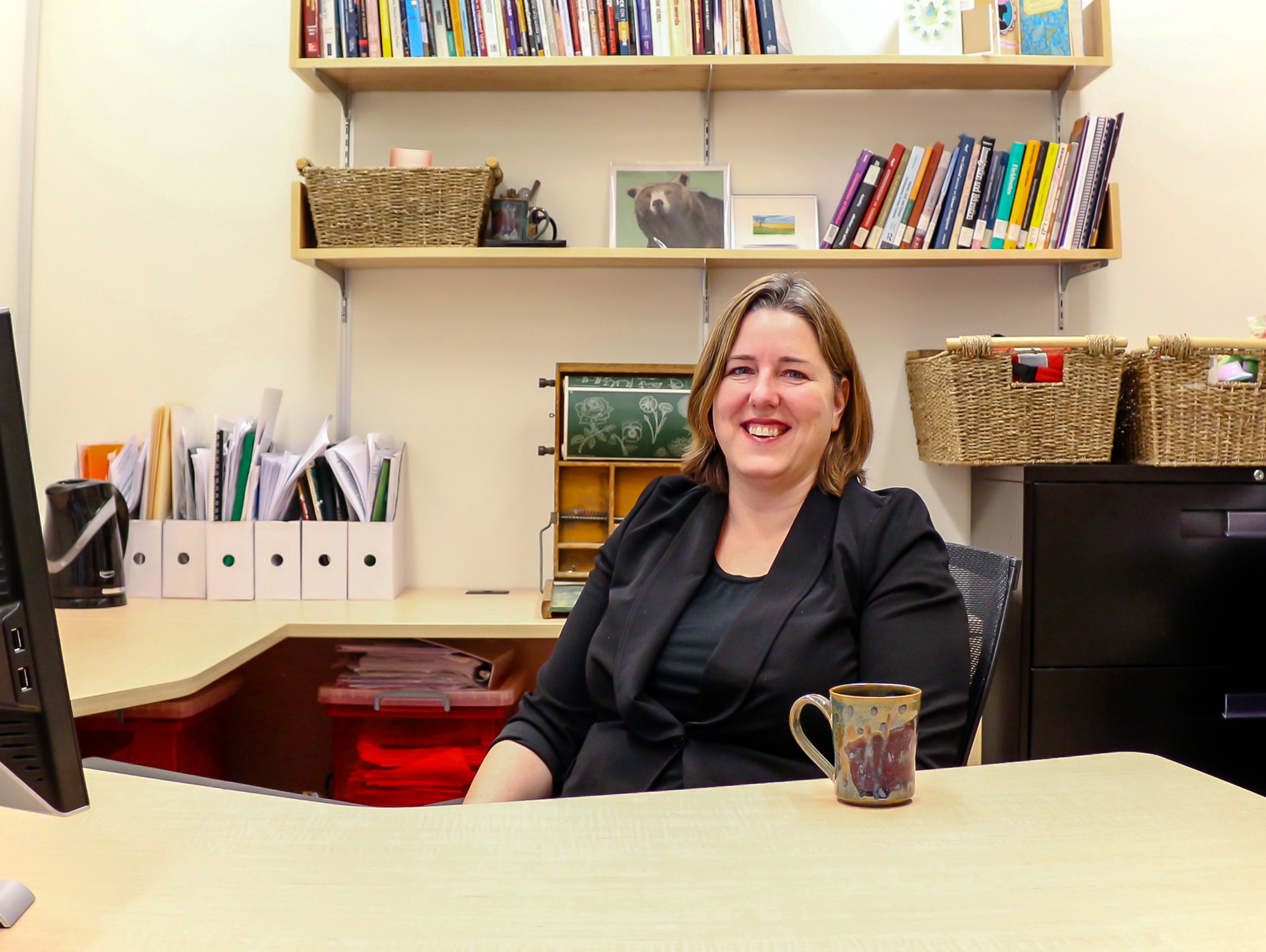 Congratulations to Dr. Christine Massing, who has been awarded the Phi Delta Kappa Doctoral (PDK) Dissertation Award for 2016. This is a $1000 award scholarship from the University of Alberta. Christine will present her research on April 19, 2017 at the PDK final meeting of the year.
Congratulations to Dr. Christine Massing, who has been awarded the Phi Delta Kappa Doctoral (PDK) Dissertation Award for 2016. This is a $1000 award scholarship from the University of Alberta. Christine will present her research on April 19, 2017 at the PDK final meeting of the year.
Category: Research and Funding
New Report on the State of Educators’ Professional Learning in Canada
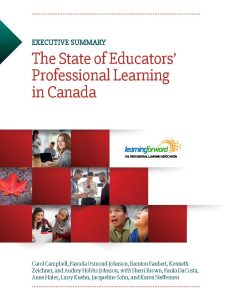 Book Launch: The Faculty of Education’s Dr. Pamela Osmond-Johnson is second author for this report: The State of Educators’ Professional Learning in Canada. Read this executive summary, which showcases the research questions addressed in the study, summarizes findings and conditions for professional learning in Canada, and concludes with implications for next steps. Examples of professional learning practices from various provinces highlight learning in action across the nation.
Book Launch: The Faculty of Education’s Dr. Pamela Osmond-Johnson is second author for this report: The State of Educators’ Professional Learning in Canada. Read this executive summary, which showcases the research questions addressed in the study, summarizes findings and conditions for professional learning in Canada, and concludes with implications for next steps. Examples of professional learning practices from various provinces highlight learning in action across the nation.
https://learningforward.org/…/p…/CanadaStudyExecSumm2016.pdf
_________________________
Press Release (Learning Forward)For Learning Forward: Tracy Crow, 972-421-0900, tracy.crow@learningforward.org
Study spurs call for culture of collaborative professionalism for educators
Vancouver, BC – December 5, 2016 — Coinciding with Learning Forward’s 2016 Annual Conference in Vancouver, British Columbia, Learning Forward today releases the findings from a new study, The State of Educators’ Professional Learning in Canada. Accompanying the study is a call to action by Michael Fullan and Andy Hargreaves.
A research team led by Carol Campbell, Associate Professor of Leadership and Educational Change at the Ontario Institute for Studies in Education (OISE), University of Toronto, examined the professional learning that educators experience in the provinces and territories of Canada. Recognized internationally as a high-performing education system, there was interest in identifying and understanding the approaches to professional learning within Canada. Previously, however, there was limited Pan-Canadian research available on this important topic. The study sought to address this gap in existing research and has identified key components and features of effective professional learning based on findings from educators’ experiences in Canada. The purpose of the study is to advance a priority focus on the elements of and conditions for effective professional learning in Canada and across the world.
“Our intent in doing the study was not to argue for a uniform approach to professional learning across Canada; rather it is the opposite,” said Campbell. “The purpose was to understand, value, appreciate, and respect the rich mosaic of educational experiences and diversity of approaches and outcomes from professional learning within and across Canada’s provinces and territories,” she noted. “It is our collective responsibility to ensure that educators and students have the highest quality learning opportunities and experiences. I’m hopeful that the study will stimulate further dialogue about professional learning across Canada and beyond.”
“Learning Forward is thrilled to support this important research study and to share it as we learn in Vancouver alongside colleagues from across Canada and around the world,” said Learning Forward Executive Director Stephanie Hirsh. “The enlightening work from Carol Campbell and her team deepens our collective understanding of professional learning and the complementary essay from Fullan and Hargreaves provokes new possibilities for how we strengthen the profession,” she said.
Several key findings emerged from the study, which included a review of research literature and existing data, case studies, surveys, focus groups, and collaboration with a national advisory group. The study outlined features of effective professional learning based on a review of the research literature and found that practices in Canada were broadly consistent with those features. At the same time, the study identified variations in the conception and implementation of those practices, offering opportunities for further exploration into local application of professional learning to advance next actions.
Findings include:
- Evidence, inquiry, and professional judgment are informing professional learning policies and practices.
- The priority area identified by teachers for developing their knowledge and practices is how to support diverse learners’ needs.
- A focus on a broad range of students’ and professionals’ learning outcomes is important.
The appropriate balance of system-directed and self-directed professional development for teachers is complex and contested. - There is no “one-size-fits-all” approach to professional learning; teachers are engaging in multiple opportunities for professional learning and inquiry with differentiation for their professional needs.
- Collaborative learning experiences are highly valued and prevalent within and across schools and wider professional networks.
- Teachers value professional learning that is relevant and practical for their work; “’job-embedded” should not mean school-based exclusively as opportunities to engage with external colleagues and learning opportunities matter also.
- Time for sustained, cumulative professional learning integrated within educators’ work lives requires attention.
- Inequitable variations in access to funding for teachers’ self-selected professional development are problematic.
- System and school leaders have important roles in supporting professional learning for teachers and for themselves.
Offering a call to the action in response to the report are study advisors Michael Fullan, OC, former OISE Dean, and Andy Hargreaves, Thomas More Brennan Chair in the Lynch School of Education at Boston College, who both consult widely with government policymakers and educational leaders around the world. Their essay, Bringing the Profession Back In, leverages the study as a stimulus for offering a new approach to developing and deepening the teaching profession in Canada and elsewhere.
At the heart of their argument is that professional learning and development (PLD), carefully defined, is at the heart of an effective and continuously growing teaching profession, and, in turn, the best visions and versions of it are rooted firmly in a system culture of collaborative professionalism that cultivates individual and collective efficacy.
Hargreaves said, “The Canadian study points to the importance of both professional learning and professional development as ways to improve the quality of teaching and learning. Professional learning is about deliberate efforts to learn something new or better, while professional development concerns how teachers become more confident and mature in their work with students and adults through experience, reflection and coaching, The most important thing of all though is that all this professional learning and development (PLD) is most effective when it takes place within a culture of collaborative professionalism where teachers work and plan together, take shared responsibility for all students’ learning in each other’s classes and schools, and undertake inquiry in teams to solve problems in their schools such as low achievement or cyber-bullying.”
Access The State of Educators’ Professional Learning in Canada: Executive Summary and Bringing the Profession Back In along with an executive summary to the case study of professional learning in British Columbia at www.learningforward.org/Canadastudy. Additional reports will be released in the coming weeks, including the full research summary.
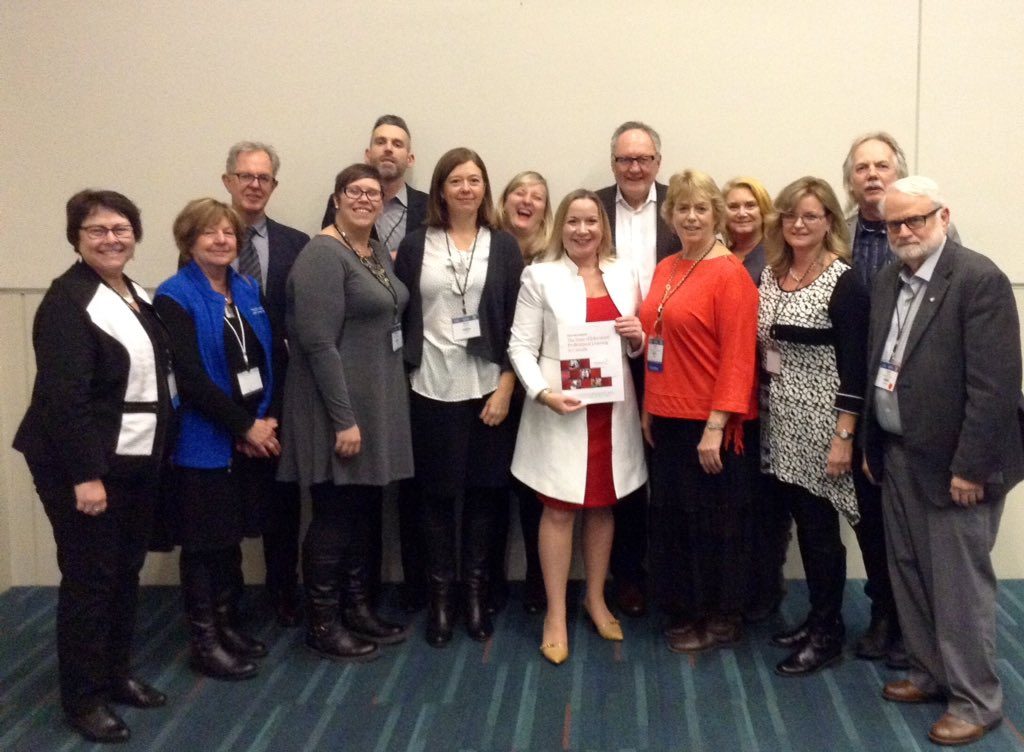
The research team for the study includes: Dr. Pamela Osmond-Johnson, Assistant Professor, University of Regina, Saskatchewan; Dr. Brenton Faubert, Assistant Professor, Western University, Ontario; and Dr. Kenneth Zeichner, Boeing Professor of Teacher Education, University of Washington, Seattle. Audrey Hobbs Johnson, Learning Forward senior consultant and former staff member with the provincial government of British Columbia serves as project coordinator. In addition, an Advisory Group consisting of experts in professional learning evidence, trends, and practices from across Canada was established to provide in-depth advice on promising practices and local contexts within provinces and territories
About Learning Forward
Learning Forward is a nonprofit, international membership association of learning educators committed to one vision in K–12 education: Excellent teaching and learning every day. To realize that vision Learning Forward pursues its mission to build the capacity of leaders to establish and sustain highly effective professional learning. Information about membership, services, and products is available from www.learningforward.org.
Research Funding News

Dr. Christine Massing (Faculty of Education), Dr. Daniel Kikulwe and Dr. Donalda Halabuzu (Faculty of Social Work) and Crystal Geisbrecht (PATHS) have signed a research contract with the Regina Region Local Immigration Partnership in the amount of $19,963.80 for the project “Barriers to Newcomer Adaptation and Settlement.” Needal Ghadi, a doctoral student in the Faculty of Education, will be the research assistant.
The mixed methods study will determine barriers and possible supports that may hinder or aid newcomers in adapting to life in Regina. More specifically, the barriers to accessing child care, education, and employment opportunities will be studied. This is a very timely study in light of the dramatic increase in newcomers to Regina in the last five years. No doubt it will make an important contribution to improving newcomer experiences in many aspects of their lives.
Christine says, “I’m looking forward to being part of this important community service project. We hope to engage with newcomers to Canada and learn about their experiences as they adapt to living here in Regina. Our goal is to gain an understanding of the barriers they have experienced as they try to access child care programs, as well as educational and employment opportunities.”
Faculty Member Awarded President’s Research Seed Grant
 Dr. Kathryn Ricketts has been awarded a University of Regina President’s Research Seed Grant in the amount of $3905.60 for her project Difference and the Arts: Finding New Languages for Curriculum Design. These awards are made to promote research and scholarly work at the University of Regina. Dean Jennifer Tupper writes: “This was a very competitive competition. Kathryn’s success is a testament not only to the quality of her application but also to the value of the proposed research.”
Dr. Kathryn Ricketts has been awarded a University of Regina President’s Research Seed Grant in the amount of $3905.60 for her project Difference and the Arts: Finding New Languages for Curriculum Design. These awards are made to promote research and scholarly work at the University of Regina. Dean Jennifer Tupper writes: “This was a very competitive competition. Kathryn’s success is a testament not only to the quality of her application but also to the value of the proposed research.”
Faculty Member to Present on Keynote Panel at Environmental Education Conference
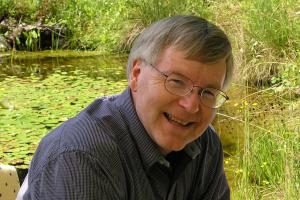 Dr. Paul Hart will be presenting as part of a Keynote Panel for the Research Symposium at the 45th annual North American Association for Environmental Education conference in mid-October. This conference, to be held in Madison, Wisconsin, “will link powerful stories of innovation and success in EE (Environmental Education) from around the world with how environmental education builds community and creates purposeful change.” David Suzuki is listed as one of the Keynote Speakers.
Dr. Paul Hart will be presenting as part of a Keynote Panel for the Research Symposium at the 45th annual North American Association for Environmental Education conference in mid-October. This conference, to be held in Madison, Wisconsin, “will link powerful stories of innovation and success in EE (Environmental Education) from around the world with how environmental education builds community and creates purposeful change.” David Suzuki is listed as one of the Keynote Speakers.
Dr. Hart’s “interactive panel will address the challenges of maintaining and communicating rigor in research from several positions based on panelist’s individual perspectives. Given these diverse questions and perspectives, panelists will create openings for our ongoing discussions of what counts as quality across diverse genres of EE research.”
Faculty Member Receives SSHRC Funding
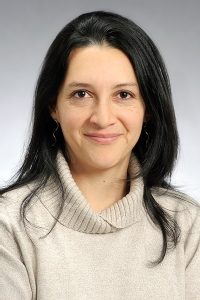 Dr. Alison Molina-Girón who joined our faculty as an Assistant Professor in January 2014 after completing her Ph.D. entitled Educating Good Citizens: A Case Study of Citizenship Education in Four Multicultural High School Classrooms in Ontario from Carleton University in Ottawa, has been awarded a Social Sciences and Humanities Research Council of Canada (SSHRC) Insight Development Grant amounting to $57, 251 for her project Digital Citizenship: Investigating the Civic and Political Engagement of Canadian Youth. Dr. Molina-Girón will investigate the ways in which minority and ‘mainstream’ youth participate in democratic processes in Saskatchewan and examine whether there are differences in the civic behaviours of groups based on their social locations.
Dr. Alison Molina-Girón who joined our faculty as an Assistant Professor in January 2014 after completing her Ph.D. entitled Educating Good Citizens: A Case Study of Citizenship Education in Four Multicultural High School Classrooms in Ontario from Carleton University in Ottawa, has been awarded a Social Sciences and Humanities Research Council of Canada (SSHRC) Insight Development Grant amounting to $57, 251 for her project Digital Citizenship: Investigating the Civic and Political Engagement of Canadian Youth. Dr. Molina-Girón will investigate the ways in which minority and ‘mainstream’ youth participate in democratic processes in Saskatchewan and examine whether there are differences in the civic behaviours of groups based on their social locations.
Faculty Members Receive Stirling McDowell Foundation Research Grants
The Faculty of Education is pleased to announce that two of our faculty along with one alumna are recipients of Stirling McDowell Foundation Research Grants:
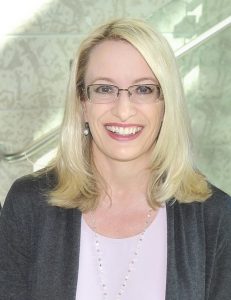
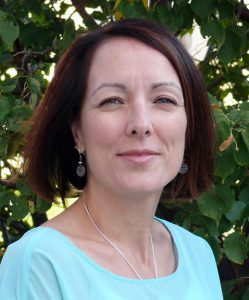
Dr. Jennifer Tupper has received a Stirling McDowell Foundation research grant of $19,933. She and co-investigator Dr. Tana Mitchell, who is a teacher at Balfour and former graduate student and sessional instructor in our faculty, were successful in their grant application to support their project: High school teachers working towards reconciliation: Examining the teaching and learning of residential schools.
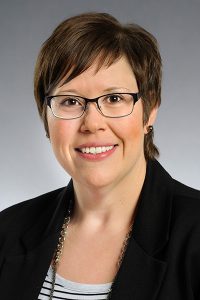
Dr. Pamela Osmond-Johnson has received a research grant of $9216 from the Stirling McDowell Foundation for her project Teachers Leading Teachers: The Saskatchewan Professional Development Unit’s Facilitator Community. Her project will explore the SPDU’s facilitator community, a professional learning community of teachers who develop and lead professional learning opportunities for their peers.
Faculty Member Receives CATE Dissertation Award
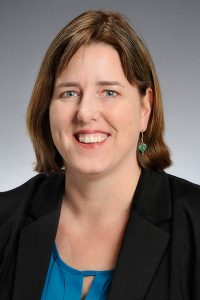
Assistant Professor in Early Childhood Education, Dr. Christine Massing, was recognized by the Canadian Association of Teacher Education (CATE) with the CATE Award for her doctoral dissertation, An Ethnographic Study of Immigrant and Refugee Women’s Knowledge Construction in an Early Childhood Teacher Education Program at the Canadian Society for the Study of Education (CSSE) Congress held in Calgary in May, 2016.
This honor acknowledges Christine’s excellent work and important contribution to Canadian teacher education research.
The following is an interview with Christine about her research, which explored how immigrant and refugee women construct understandings of the authoritative or dominant discourse of early childhood in relation to their own beliefs, values, knowledges, and experiences:
What circumstances/situation led you to research the topic of your dissertation?
At the time I was contemplating doctoral studies, I was teaching in an early childhood program specifically designed for immigrants and refugees. At the end of my first year, one of my students, a refugee from Somalia who had raised 10 university-educated children, expressed to me that she now realized that her approach to mediating her children’s disputes had been “wrong.” Through conversations with my students over the next year, I came to understand that some of the theories and practices they were learning in the program were dissonant with their own understandings. Because I have also lived and taught in diverse contexts—Japan, Egypt, Colombia, Mexico, Guatemala, and in two First Nations communities here in Canada—their comments resonated with me to some extent (although as a temporary visitor I did not experience such discontinuities between worldviews as acutely as my students did). I felt concerned that many of these women—all of whom had extensive experience as mothers, teachers, or caregivers in their home countries—might believe that they needed to abandon all that they knew about teaching and caring for young children to be accepted in Canadian school and preschool settings. Despite their candor, I sensed that they were reticent to be too critical of the program and, by extension, me as an instructor so I felt I might elicit more details as a researcher.
How has your research impacted your personal and/or professional life?
On a personal level, I have appreciated the friendships I have developed with many of my research participants and I have learned so much from them. Professionally, this research has assisted me in identifying some of the funds of knowledge that immigrants and refugees bring to early childhood theory and practice, which, in turn, enriches my own work with teacher candidates. I hope to mobilize these new understandings to guide teacher candidates toward being more responsive to culturally and linguistically diverse children and their families. This research has also deepened my understanding of how teacher candidates navigate unfamiliar content in their coursework and internships and inflect their practice with their own beliefs and values. If students have time and space for dialogue with the content and practices they are learning, they can populate their practice with their own intentions and meanings and make it their own.
What do you hope your research might accomplish in the field of education?
When I undertook this research, I had the impression that my immigrant and refugee students simply appropriated the dominant practices because they wanted to “fit in” and be seen as professionals. However, I was surprised to find that in some situations the participants rebelled against the authoritative practices, instead enacting their own beliefs and practices when their supervisors were not looking. Therefore, they risked failing their placements because they strongly believed that some of the dominant practices were not in the best interests of the children. It is my hope that early childhood sites and teacher education programs will begin to acknowledge the validity of what Bakhtin refers to as “multiple, polyphonic voices” so culturally and linguistically diverse teacher candidates can imbue their practice with their own knowledges and beliefs. I believe that such practices will provide richer and more meaningful experiences for immigrant and refugee children and their families who will be supported in their diverse ways of being and becoming.
Was it difficult to achieve your research goals? How did you overcome obstacles (if any), whether personal or professional?
The primary concern I had in doing this research was gaining the trust of participants because I was researching in a program for immigrant and refugee early childhood students and was very obviously an outsider. Although the participants knew that I was a doctoral student and early childhood instructor, for three semesters, I sat in classes alongside them and participated in all of the course experiences as a student in the program. Many of my participants were Muslim so the fact that I had lived and worked in Egypt was particularly helpful in building trust. They did come to accept me as “one of them” so much so that they invited me to participate in their activities and transgressions (such as skipping class!).
An Excerpt
The following excerpt from Christine’s dissertation illustrates the tensions faced by immigrant/refugee early childhood students, something she considers to be at the heart of her research:
Ameena’s explanation actualizes this tension between personal or cultural ways of being with children and the authoritative discourse of professionalism: “Professional means you do how they teach you [in the ECTE program] even if they (supervisor or instructors) don’t see you…. Joanne [an educator], she’s more professional in how she talks to the kids, how the kids love her. Everything she does in a real way, the right way, and a real way” (Interview, February 28, 2013). Joanne is perceived as holding the “right” professional knowledge, but she is also “real,” acting intuitively and applying what she personally knows about children. Consistent with Wenger’s (2000) work, the professional educator must be able to mobilize her personal understandings and refine the expected competencies. Since the practical knowledges of immigrant and refugee students or educators are excluded from the authoritative discourse, it is difficult for them to legitimately apply their own understandings in this manner. Essentially, these women are positioned as needing to change themselves otherwise their learning trajectory will never lead to full, legitimate participation in the early childhood community of practice (Wenger, 1998).
Abstract: In my former role as an early childhood education instructor working with immigrant and refugee women, I came to understand that they might experience a dissonance between the authoritative discourse (Bahktin, 1981) of early childhood, inscribed with western theories and values, taught in the program and their own intuitive, tacit, and practical knowledges. The purpose of this study, funded by the Social Sciences and Humanities Research Council of Canada and the Killam Trusts, was to explore how twenty immigrant/refugee women constructed understandings of this authoritative discourse as they negotiated their professional identities during their coursework and field placements in an early childhood teacher education program. Using an ethnographic methodology, I was immersed in the participants’ coursework and practicum experiences for two to three days a week over three semesters of study, collecting qualitative data through field notes, spatial mapping, interviews, focus groups, and artifacts/documents. One of the most significant findings of this research pertained to the participants’ own responses when confronted by discontinuities between the professional expectations in the field and their own knowledges, practices, beliefs, and values. Consistent with the limited scholarship in this field, the participants did sometimes feel compelled to suppress their own beliefs and enact what they had learned in the program in order to be seen as professionals. However, this research elucidated two additional responses. First, the participants sometimes resisted or rejected the authoritative discourse in favour of their own cultural practices. On other occasions, they authored their own hybridized professional identities derived both from the professional expectations in the community of practice as well as from their own cultural and religious beliefs and values about how to teach and care for young children. This research contributes to our understanding of the knowledges and experiences immigrant and refugee women bring to the field which can be mobilized to support the meaningful inclusion of immigrant/refugee children and their families in schools or early childhood settings.
Supervisor: Dr. Anna Kirova, professor of early childhood education at the University of Alberta,
Committee members: Dr. Heather Blair and Dr. Lynne Wiltse.
Date defended: October 26
Faculty of Education to have a Tier II Canada Research Chair for Reconciliation Education
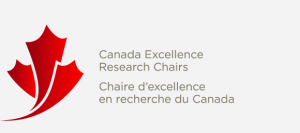 A special committee to the Provost has recommended a Canada Research Chair for Reconciliation Education for the the Faculty of Education, University of Regina. The Canada Research Chairs (CRCs) are established by the Canadian Government to foster research excellence (http://www.chairs-chaires.gc.ca/). Tier 2 Chairs are intended for exceptional emerging scholars with less than 10 years of active research in their field. Please consult the Canada Research Chairs website (https://www.chairs-chaires.gc.ca/about_us-a_notre_sujet/index-eng.aspx) for full program information, including further details on eligibility criteria.
A special committee to the Provost has recommended a Canada Research Chair for Reconciliation Education for the the Faculty of Education, University of Regina. The Canada Research Chairs (CRCs) are established by the Canadian Government to foster research excellence (http://www.chairs-chaires.gc.ca/). Tier 2 Chairs are intended for exceptional emerging scholars with less than 10 years of active research in their field. Please consult the Canada Research Chairs website (https://www.chairs-chaires.gc.ca/about_us-a_notre_sujet/index-eng.aspx) for full program information, including further details on eligibility criteria.
Canada Research Chairs Program is a tri-agency initiative of the Social Sciences and Humanities Research Council (SSHRC), the Natural Sciences and Engineering Research Council and the Canadian Institutes of Health Research. It is administered by the Tri-agency Institutional Programs Secretariat, which is housed within SSHRC.
The University Strategic Plan, peyak aski kikawinanw (together we are stronger), makes central indigenization and anti-colonial initiatives, which are further supported by the over 50 faculty members across campus who participate in the social justice and the health equity research clusters. The Faculty of Education is committed to strengthening and enhancing its efforts in reconciliation education and is already emerging as a national leader in this respect. Both the University and the Faculty of Education have expertise in several areas of anti-Colonial and Indigenous scholarship.
This position is now advertised at https://urcareers.uregina.ca/applicants/jsp/shared/position/JobDetails_css.jsp?postingId=195867
Bac Faculty Member Recipient of Research Grant From ACF

Congratulations to Dr. Fadila Boutouchent who is the successful recipient of a $6,875 grant from Assemble Communautaire Fransaskoise (ACF) for her project entitled The Retention Deficit of Students in Education Programs in French in Saskatchewan: Evaluation of Students From Grades 8 to 11.
This is a notable achievement that will undoubtedly make important contributions to the research and scholarship in French education, not only in Saskatchewan, but also nationally and internationally.